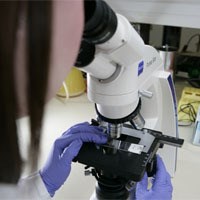
Top stories






More news


Marketing & Media
Ads are coming to AI. Does that really have to be such a bad thing?














Researchers - from the Institute of Pathology in Locarno, Switzerland and the Istituto Toscano dei Tumori, Livorno, Italy - looked for extra copies of the breast cancer gene 'HER2' in tumour samples from 170 advanced bowel cancer patients treated with either cetuximab or panitumumab.
These drugs are part of a raft of new targeted treatments directed against tumours that overproduce a protein called Epidermal Growth Factor Receptor (EGFR)2. They work by preventing EGFR from receiving signals from growth factors, which fuel tumour development.
Healthy cells have 2 copies of the HER2 gene - one inherited from each parent. But in some cancer cells the gene can become copied many times, producing lots of HER2 protein that can drive the disease. The researchers found that measuring the numbers of copies of the HER2 gene in tumour samples could be used to predict resistance to anti-EGFR drugs.
Tumours with consistently high numbers of copies of HER2 throughout- less than one in 20 patients - tended to be resistant to anti-EGFR treatments. These patients had the worst survival rates (4.2 months on average).
While those with the normal number of HER2 genes in their tumour - around 35 per cent of patients - were found to have a good response to these treatments and the best survival rates (13 months on average).
The remaining 65 per cent of patients had a mixture of tumour cells, some of which had extra HER2 genes. These patients only had a partial response to treatment and moderate survival time (9.7 months on average).
Dr Milo Frattini, lead researcher from the Institute of Pathology in Locarno, Switzerland, said: "These results suggest that overproduction of HER2 is not restricted to breast cancer and that it may also drive cancer growth in a significant number of bowel cancers.
"Importantly, because HER2 is a 'sister' molecule of EGFR that regulates a similar set of cancer-causing genes, this could explain how some cancers bypass the EGFR blockade put in place by drugs like cetuximab and panitumumab, causing resistance to these drugs. So in future this could be used to identify patients most likely to respond to anti-EGFR drugs."
Study co-leader, Dr Federico Cappuzzo, from the Istituto Toscano dei Tumori, Livorno, Italy, added: "Our study opens up new options for patients with cancer of the small bowel, by highlighting how existing drugs targeting HER2, such as herceptin or lapatinib, which are currently used in the management of breast cancer, might be extended to these patients."
Dr Julie Sharp, Cancer Research UK's senior science information manager, said: "This research reminds us that cancers often have a variety of different tricks at their disposal when it comes to drug resistance. But, encouragingly, it also suggests that there may be overlap between the faults driving different types of cancer, raising the prospect that combinations of existing drugs could be used to treat a variety of cancers.
"Improving our understanding of the faults driving different types of cancer will in future make it easier to match patients to the treatments most likely to benefit them."
Source: Cancer Research UK